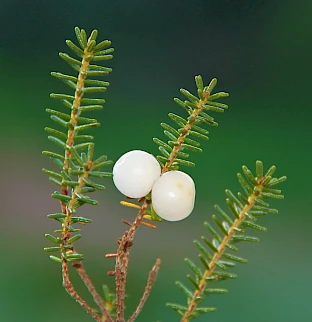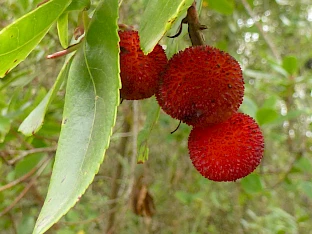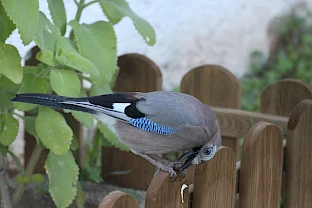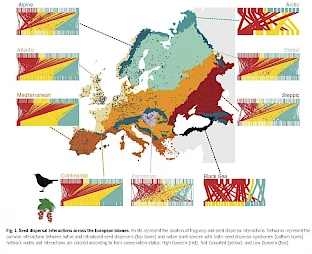Study in 'Science' reveals worrying seed dispersal crisis in Europe
A study led by researchers from the Centre for Functional Ecology (CFE) and published today in the prestigious Science magazine reveals that Europe is experiencing a worrying seed dispersal crisis.
This research shows that a third of the 398 species of animals that disperse seeds are already threatened with extinction, or their populations are in decline and could face the risk of extinction shortly. On the other hand, at least 190 wild plant species in Europe have the majority of their known dispersers threatened or in decline.
«This study demonstrates a seed dispersal crisis in all European biomes. On the other hand, it also shows that we only know the dispersers of 26% of the plant species that produce fleshy fruits in Europe, so it is urgent to understand better which animals can help wild plants escape rapid climate change and desertification, mainly in Southern Europe», warns Sara Mendes, CFE researcher and first author of the study.
Ruben Heleno, professor at the Department of Life Sciences at FCTUC and co-author of this study, considers that «it is necessary to invest more in research and conservation of the seed dispersal services in Europe and the world, as these services are fundamental to ensuring the sustainable functioning and resilience of forests.
Plants do not move and, therefore, depend on the services of animals that feed on their fruits to take their seeds to new places where they can grow. Protecting the wild animals that provide this service will benefit not only the animals themselves but also the plants and the entire ecosystem, on which the economy and our quality of life ultimately depend", points out the CFE researcher.
«This service is essential to recover disturbed areas, for example, those affected by forest fires, floods, or human activities, especially in landscapes fragmented by roads, cities, and towns, such as those that dominate Europe. Furthermore, in the current scenario of climate change, animals that feed on fruits are essential to help plants keep up with climate change, moving to places with more favourable conditions», concludes the expert.
The research gathered information from two thousand papers published between 1660 and 2023 in 27 languages and 38 countries to identify which animals provide this seed dispersal service in Europe and their conservation status. Compiling this information took more than three years, resulting in the world's most extensive seed dispersal network and the first to gather information from an entire continent.
The scientific paper "Evidence of a European seed dispersal crisis" is available here.





